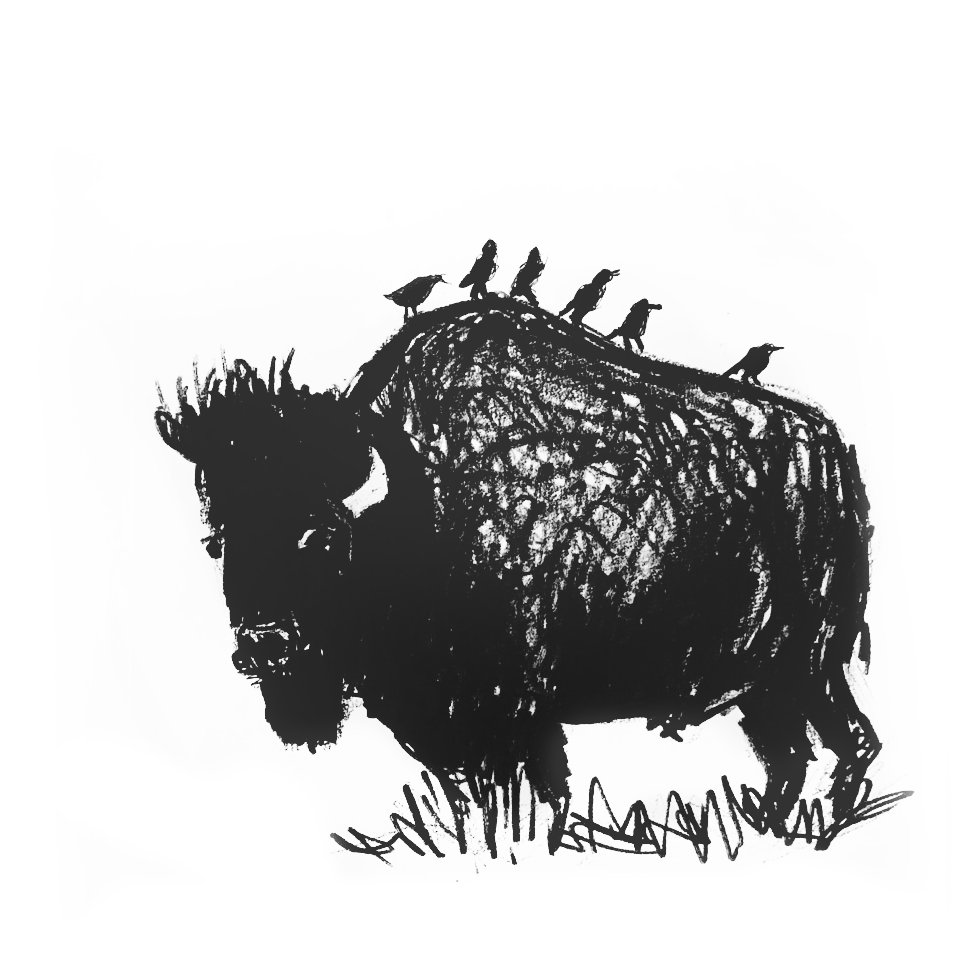Yes, Marcos is gay.
Marcos is gay in San Francisco,
Black in South Africa,
an Asian in Europe,
a Chicano in San Ysidro,
an anarchist in Spain,
a Palestinian in Israel,
a Maya Indian in the streets of San Cristóbal,
a Jew in Germany,
a Gypsy in Poland,
a Mohawk in Quebec,
a pacifist in Bosnia,
a single woman on the Metro at 10pm,
a peasant without land,
a gang member in the slums,
an unemployed worker,
an unhappy student,
and of course, a Zapatista in the mountains…”
— Excerpt from Subcomandante Insurgente Marcos, Old Man Antonio: “Strength is born in the mountain, but it’s not seen until it arrives below,” (May 28, 1994)
A Palestinian in Israel… a Jew in Germany the words read. Marcos is not just an identity; Marcos is an identity in a context. Not just a Palestinian and not just a Jew, a Palestinian in Israel and a Jew in Germany. Marcos is the below being crushed by the above, but not only. Marcos is an identity in a context of resistance: not simply gay, gay in San Francisco. Marcos is dignity, the strength to be who you are, not who others want you to be.
The “Marcos is gay” excerpt is from a postscript, from a P.S. of a longer communique from 1994 where Subcomandante Insurgente Marcos, the Zapatista spokesperson at the time, recalls visiting the villages in the Lacandon Jungle in 1992 to learn their decision about going to war. While in the village of his mentor Viejo Antonio, Old Man Antonio, awaiting the village assembly’s decision, Viejo Antonio guided Marcos to a river nearby. He pointed out that the war between the clouds and mountains above brings the rain, creating the river below. “Strength is born in the mountain, but it’s not seen until it arrives below,” Viejo Antonio had said.
In Maya worlds, appreciation, innocence, peace, happiness, and tranquility in our hearts closes the window that allows the seven shames to invade: ego, pride, envy, lying, ignorance, ingratitude, and crime, words that my Maya-Q’eqchi’ teacher, Tata Julio, does not like to repeat out loud too much. He says a five-pointed star serves as a shield above the windows and above the doors. This morning in our lesson I asked Tata Julio how one can be a defender of the people in war while maintaining appreciation, innocence, peace, happiness, and tranquility in one’s heart.
“Patience,” was his answer. “We don’t see the results until much later. But they’re there.”
The first members of the EZLN entered the Lacandon Jungle trained as urban guerrillas, and they had to learn this patience, they had to learn to listen to the below. The figure of Viejo Antonio in Marcos’ stories served as a bridge, connecting them with the Maya world through sacred texts like the Popol Vuh of the Quiche-speaking Maya people, the Maya-Quiche. Sometimes called the Maya Bible and often translated as the “Book of the Community,” or the “Book of Council,” the Popol Vuh is a Maya creation story of the beings between the earth and the sky, between the east, west, south, and north, a creation story of the hearts of those between the earth and the sky.
The Popol Vuh was largely passed down as oral tradition until the 1550s, when it was recorded in writing as Columbus and Them were burning the Maya books, the Maya codecis. A Catholic priest hosting a mass book burning in the Yucatán peninsula wrote, in 1562:
We found a large number of books in these characters and, as they contained nothing in which were not to be seen as superstition and lies of the devil, we burned them all,
which they regretted to an amazing degree, and which caused them much affliction.
The “Marcos is gay” subscript was responding to the Mexico of Columbus and Them, the Mexico from above that sought to delegitimize the EZLN by calling its spokesperson gay. The subscript was published in 1994, but I first encountered it many years later. Its reference to a Palestinian in Israel and a Jew in Germany helped resolve something for me as I was learning about Palestine: there is no eternal oppressed identity, there is no eternal oppressor identity; there is a context of domination, identities can shift between above and below; the root of the problem is that there exists an above vs a below; the root of the problem is the context of injustice.
In 2003, still at the height of the Second Intifada, news traveled around the world when Israel killed a White American woman in Gaza, and again the following year when Israel killed a White British man in Gaza. Rachel Corrie had placed her body in front of an Israeli armored bulldozer in Gaza to protect a Palestinian home from demolition. She was a White American woman, and still an Israeli bulldozer crushed her body. Tom Hurndall was a photography student peacefully protesting with Palestinians in Gaza. He was a White British man, and still an Israeli sniper shot him in the head. Rachel Corrie and Tom Hurndall went to Gaza to resist like a Palestinian in Israel. Defenders of the people who didn’t get to see the results of their struggle, but it’s there. Rachel Corrie and Tom Hurndall, presentes.
There exists no eternally oppressed identity, there extists no eternally oppressor identity. There exists context.
The first time I applied for a National Science Foundation doctoral dissertation grant to help me argue this about Palestine, the reviewers didn’t like that I brought up so much context. Their rejection letter said my research was “a plain threat” “to Eretz Israel adherents.” Eretz Israel is the name Zionists use for an Israel whose borders extend well beyond Palestine all the way east to Iraq, meaning Israel’s destruction and death promises to continue well beyond Palestine. It already does.
When I was nine years old, a Jew in Germany had already asked me who I would defend in a context like that. Anne Frank, presente. I was an adult now, answering her question, accompanying both Jews in Germany and Palestinians in Israel, Palestinians in a land called Palestine occupied on all sides by an genocidal force called the State of Israel.
My university let me know that if I set foot in the Gaza Strip I would not graduate. Whether I visited Gaza on fieldwork or off, they said, it wouldn’t matter, my research wouldn’t count. The university was following the U.S. State Department travel restrictions. The year was 2010. The Gaza Strip and the West Bank had long been labeled with the highest travel restriction, but the West Bank had just been lowered one notch to facilitate its new economic reforms. I would be allowed to go to the West Bank only if I signed a waiver saying the university would not be responsible if I was killed. It didn’t say killed by whom. They did make sure to add, “I further agree that I will not travel to Gaza.”
Once finished with course work and exams, and with changing my research site from Gaza to the West Bank, I spent the summer before moving to Palestine reading books in the Black Radical Tradition prompted by other teachers of mine at the time, a collective inspired by both the Zapatistas and the Black Panthers, mentored by Ashanti Alston, former member of the Black Panther Party and the Black Liberation Army, former political prisoner, abolitionist, and weaver of the Black Panthers and Zapatismo. That summer was dedicated to reading books I kept hearing about from my teachers. The Autobiography of Malcolm X (1965), who inspired the Black Panthers; Black Panther Co-Founder Huey Newton’s Revolutionary Suicide (1973), and imprisoned intellectual George Jackson through his prison letters: Soledad Brother (1970) and Blood in My Eye (1971).
Blood in My Eye was the last book I read before moving to Palestine. It was August 2010. In the book, George Jackson theorizes fascism, but not simply the fascism restricted to the Italy of Mussolini or to the Germany of Hitler during the Second World War. George Jackson was a theorist of fascism, but not simply of the fascism experienced within the borders of Europe and on the bodies of Europeans. George Jackson analyzed fascism as a practice and logic beyond the Second World War. In broadening out fascism’s geography and history, Jackson complimented prior arguments like Aimé Césaire’s in the 1950s that analyzed the genocide of Jews and those who were different within Europe as part of the same logic practiced by Europe against non-Europe. Césaire’s word for it was colonialism.
The Black Martinican poet agreed that genocide is the greatest crime against humanity, but was more expansive to include all humanity, not only Europe’s. As Césaire had put it, Europe’s violence onto itself with the Nazi Holocaust was a “boomerang” back to Europe, and that before Europeans were its victims, they had tolerated Nazism by another name in non-Europe,
that they absolved it, shut their eyes to it, legitimized it, because, until then, it had been applied only to non-European peoples.
When Blood in My Eye was published in 1971, it had been a decade since George Jackson began serving a sentence of one year to life. At 19 years old in 1961, he had been convicted of robbing $70 from a gas station. While locked up, Jackson was mentored by other prisoners to study and read about liberation and radical theory, “radical” meaning the root. Jackson became an effective teacher and was thrown into solitary confinement because of it. It was in solitary in 1971 where George Jackson had written about fascism that,
Its most advanced form is here in Amerika.
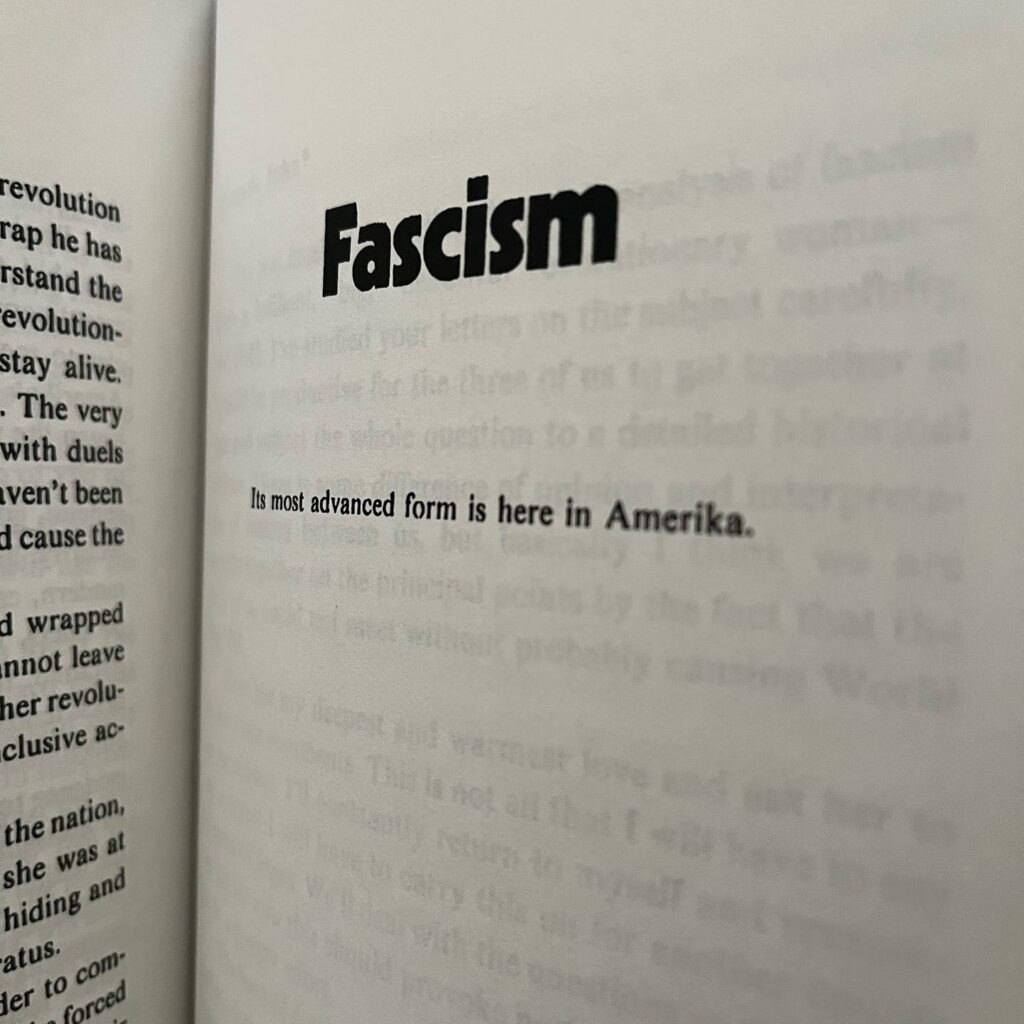
My body had reacted defensively when I turned to page 127 of Blood in My Eye that summer and first read those words. You hadn’t known about Israel yet, I challenged George Jackson. In fact, George Jackson had known about Israel. After they assassinated him, the prison guards found over 99 books in Jackson’s cell, including a collection of Palestinian resistance poetry called Enemy of the Sun. My instinct had been to argue with him, but the more George Jackson I read, the more I suspected I was going to lose. He was talking about capitalism:
We will never have a complete definition of fascism, because it is in constant motion, showing a new face to fit any particular set of problems that arise to threaten the predominance of the traditionalist, capitalist ruling class. But if one were forced for the sake of clarity to define it in a word simple enough for all to understand, that word would be ‘reform.’ We can make our definition more precise by adding the word ‘economic.’ ‘Economic reform’ comes very close to a working definition of fascist motive forces.
Economic reform. I had previously only considered military and police as the faces of fascism. I had only considered naked force. I had not been wrong to, but naked force is not the only force. When fascism doesn’t have to be so forced is fascism’s advanced form. When the people desire fascism is fascism’s most advanced form. George Jackson was in a dungeon serving one year to life for $70, and outside the people were shopping in willful ignorance, distracted from the blood under their feet, desiring captivity not escape.
In Palestine in 2010, I witnessed the beginnings of the West Bank’s economic reforms. Palestinians were starting to take out debt, something unheard of before, according to everyone: car loans, house loans, even student loans. It was resembling the consumerist ways of Americans, except in an economy fully dependent on foreign aid, on Israel-friendly foreign aid, an economy the Palestinian Authority couldn’t even pretend to control, a foreign aid economy of war.
Gaza, in contrast, remained besieged.
As a theorist of fascism, Jackson’s greatest concern was the health of the resistance. He argued the resistance is weak when it respects the fascist’s accomplishments, when the resistance regards the fascist with prestige. He used that word, prestige:
The aura of magic, glamour, luster, and splendid permanence covers the fascists like a protective layer of fat… Prestige bars any serious attack on power. Do people attack a thing they consider with awe, with a sense of its legitimacy?
Fascism advances when we learn to respect the master, more when we wish the master loved us, and is far gone when it is the master we desire to become. When we regard the fascists with awe, when we wish ourselves to be seen that way too, when we seek a position of prestige alongside them, our resistance to fascism is weak.
It would not be in the West Bank but in West Jerusalem where I would concede the fight to George Jackson. It happened at an Israeli outdoor mall across from East Jerusalem, across from where Palestinians are regularly harrassed, assaulted, raided, tortured, imprisoned, displaced, killed by Israel’s military and police. At the Mamila Mall in West Jerusalem, by stark contrast, the shoppers looked and acted willfully deluded, just like Americans. Many were probably Americans. It reminded me of the Santa Monica Promenade in Los Angeles, people distracted from the blood beneath their feet, ignoring the displaced dying across the street. There weren’t tanks or police in West Jerusalem either. They’re not always necessary. Within the people there was plently of consent, willfull ignorance to help cope with the fear, a refusal to escape, a desire for captivity instead.
If we wish to know how advanced the fascism is, ask the resistance if their leaders are their masters.
If we wish to know how advanced the fascism is, ask the resistance who it wishes to be loved by.
If we wish to know how advanced the fascism is, ask the resistance who they desire to become.
Amerika’s is certainly most advanced.
George Jackson, presente.
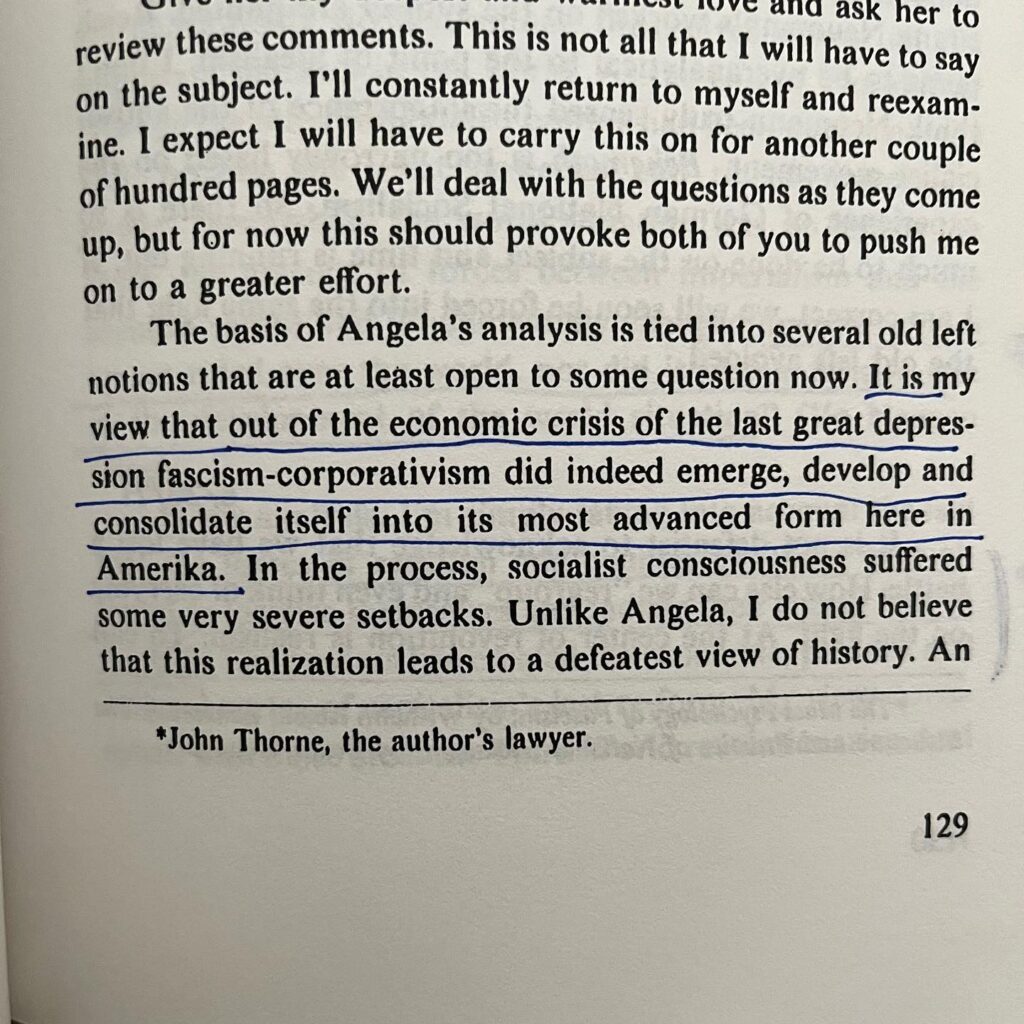
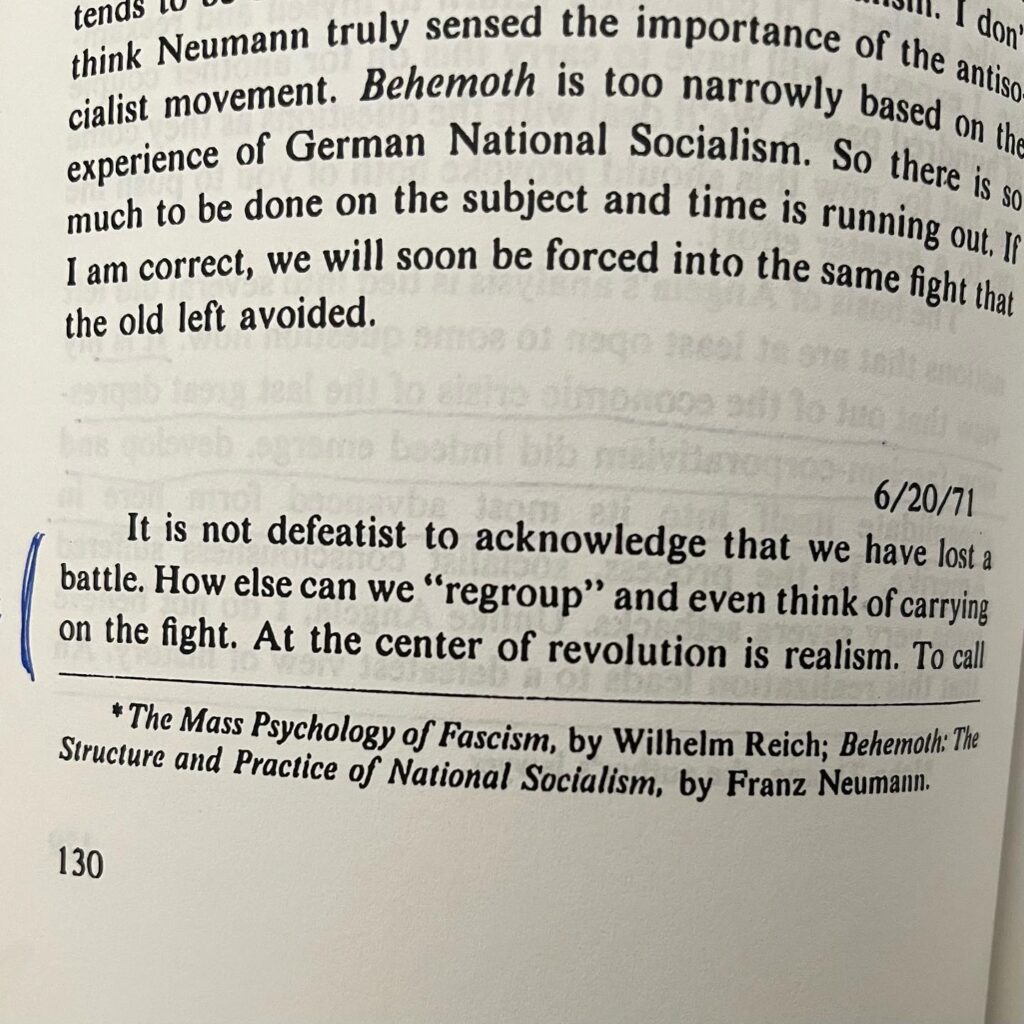
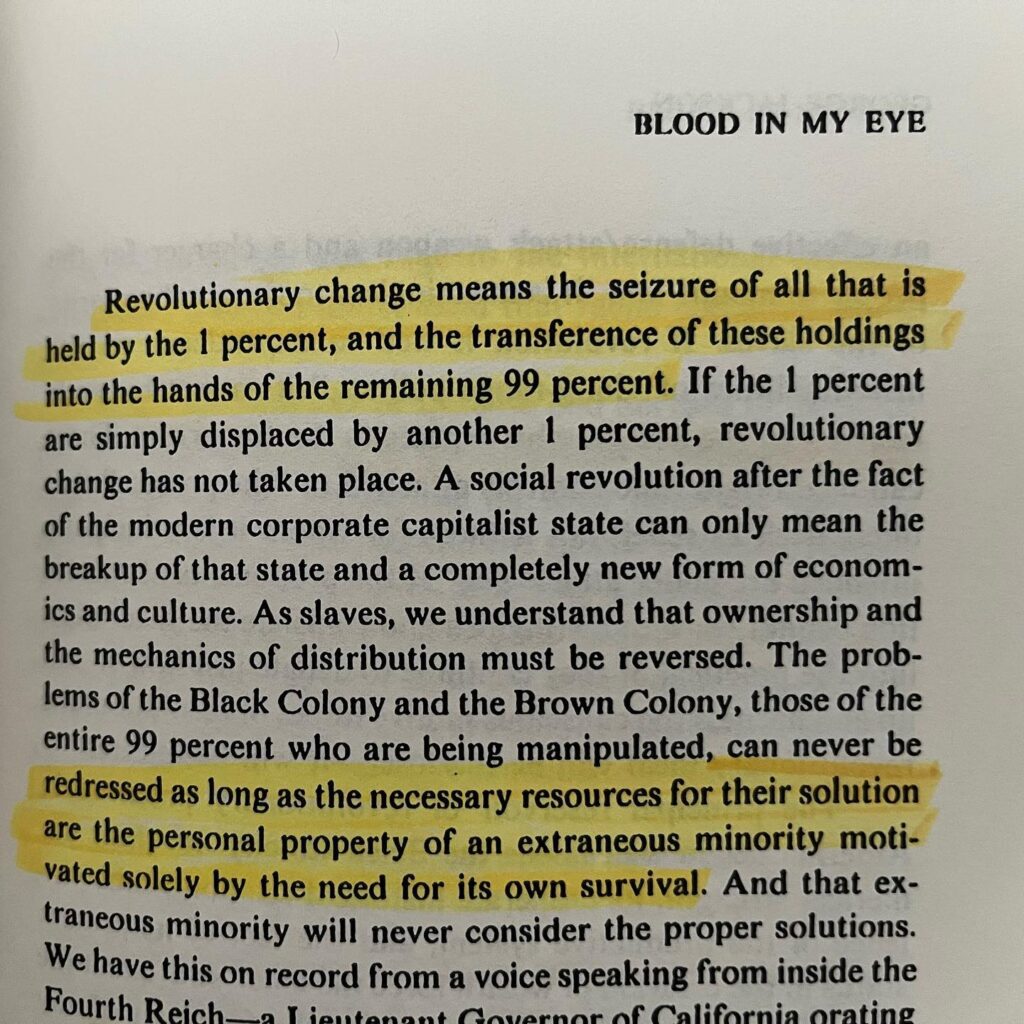
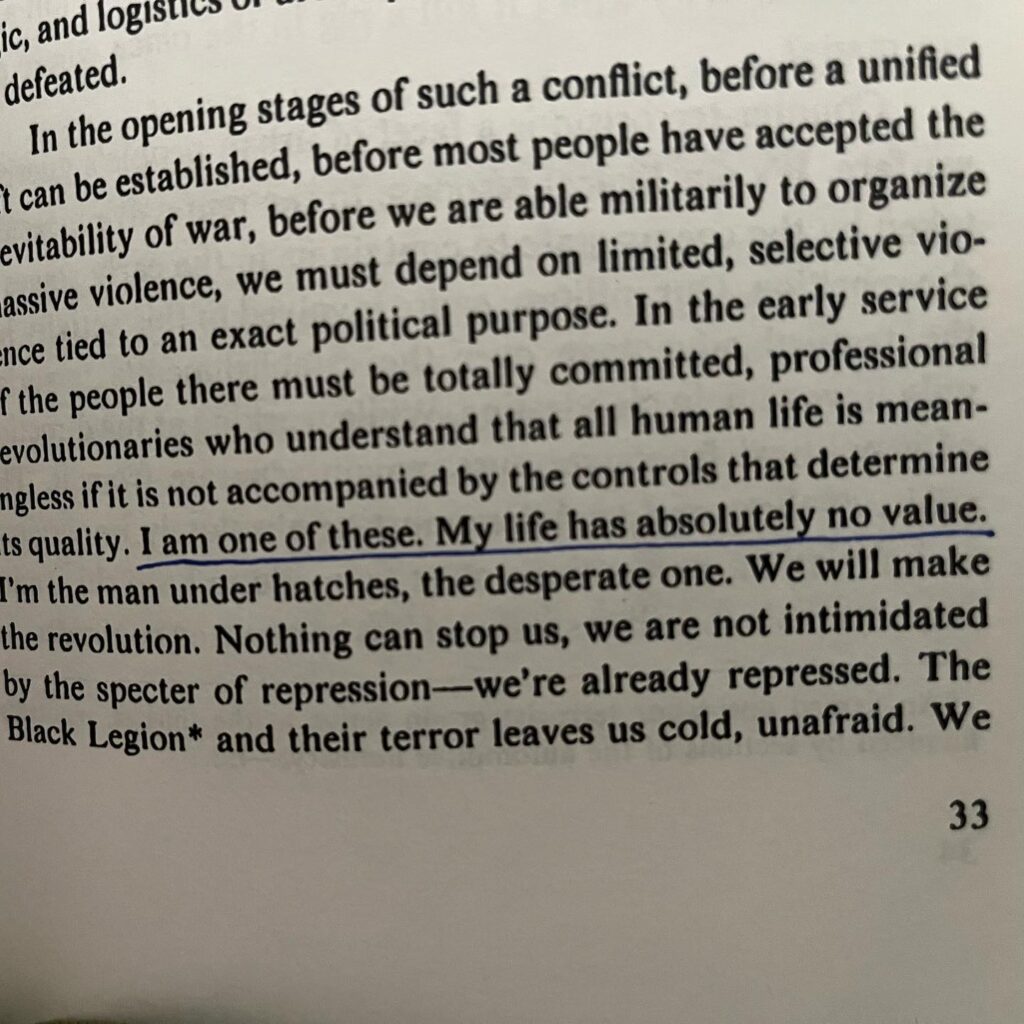
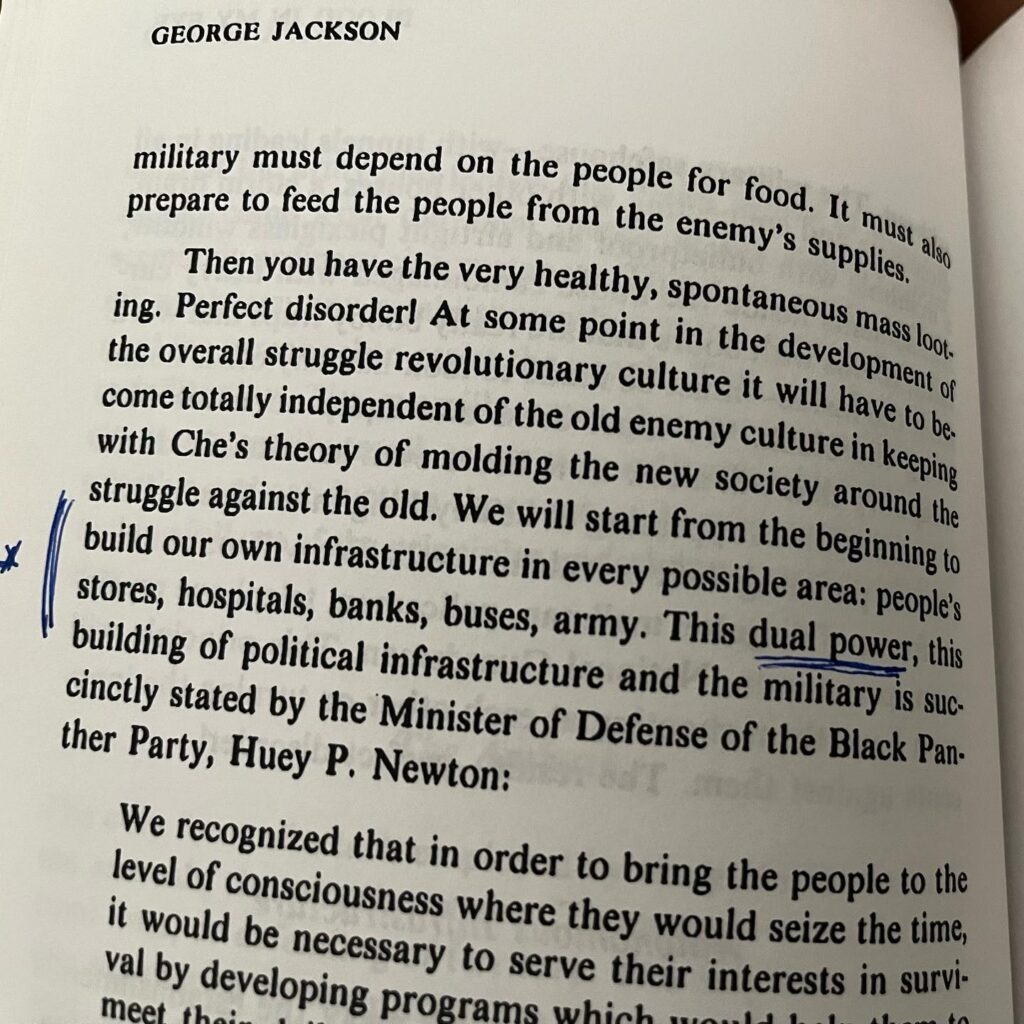
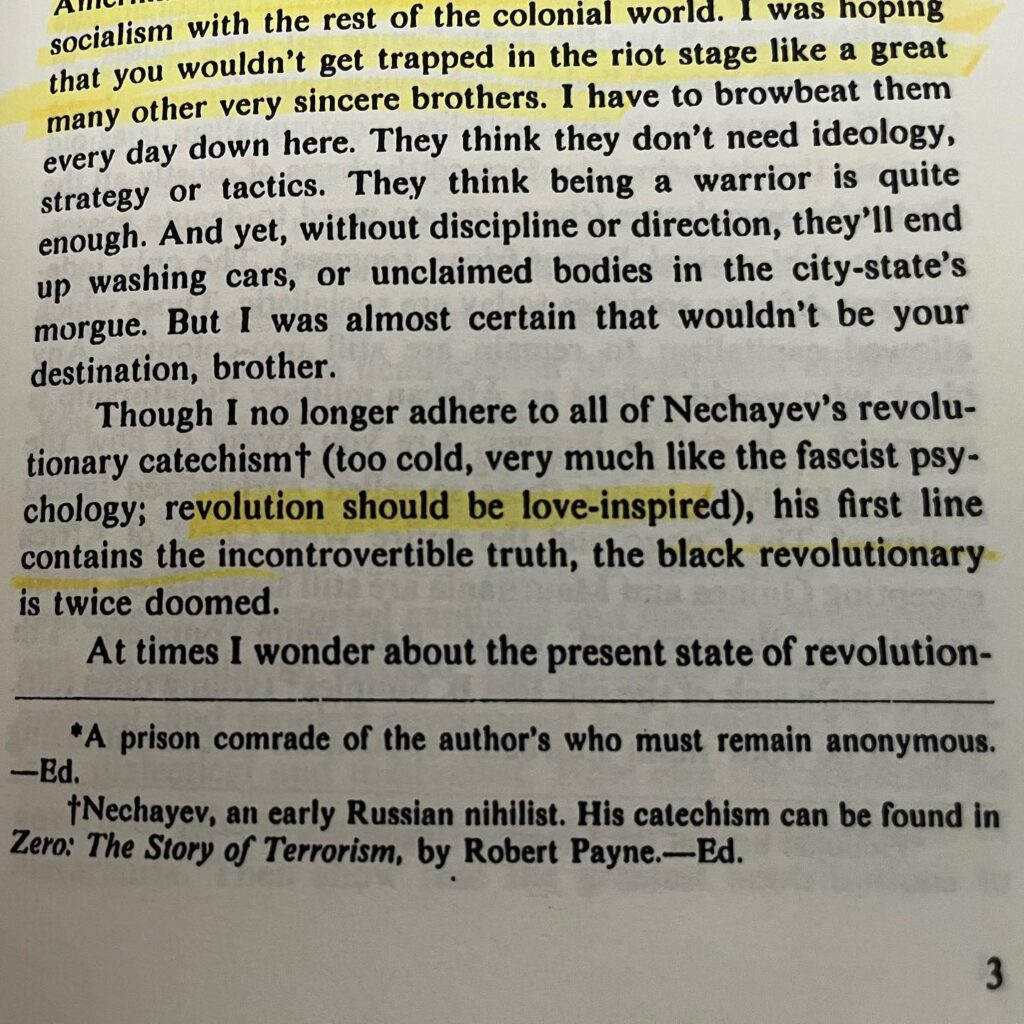
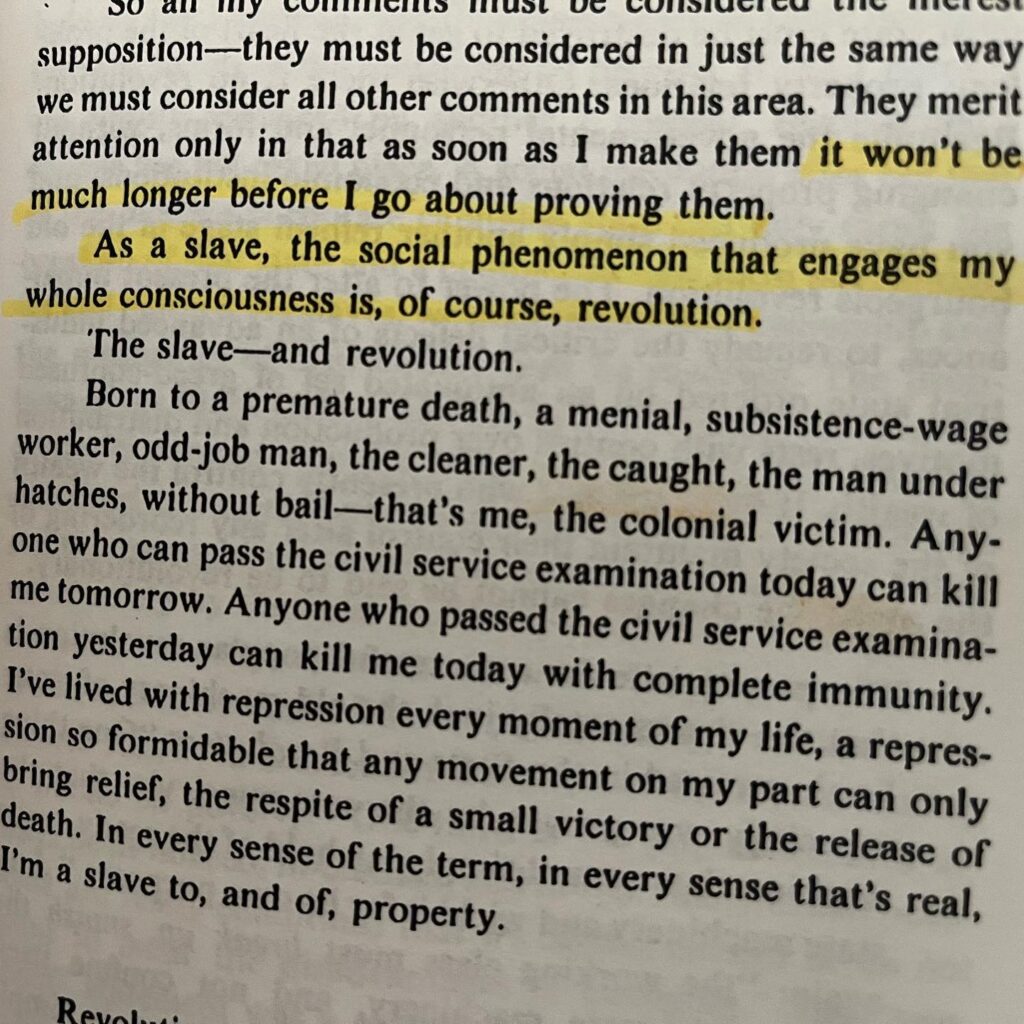
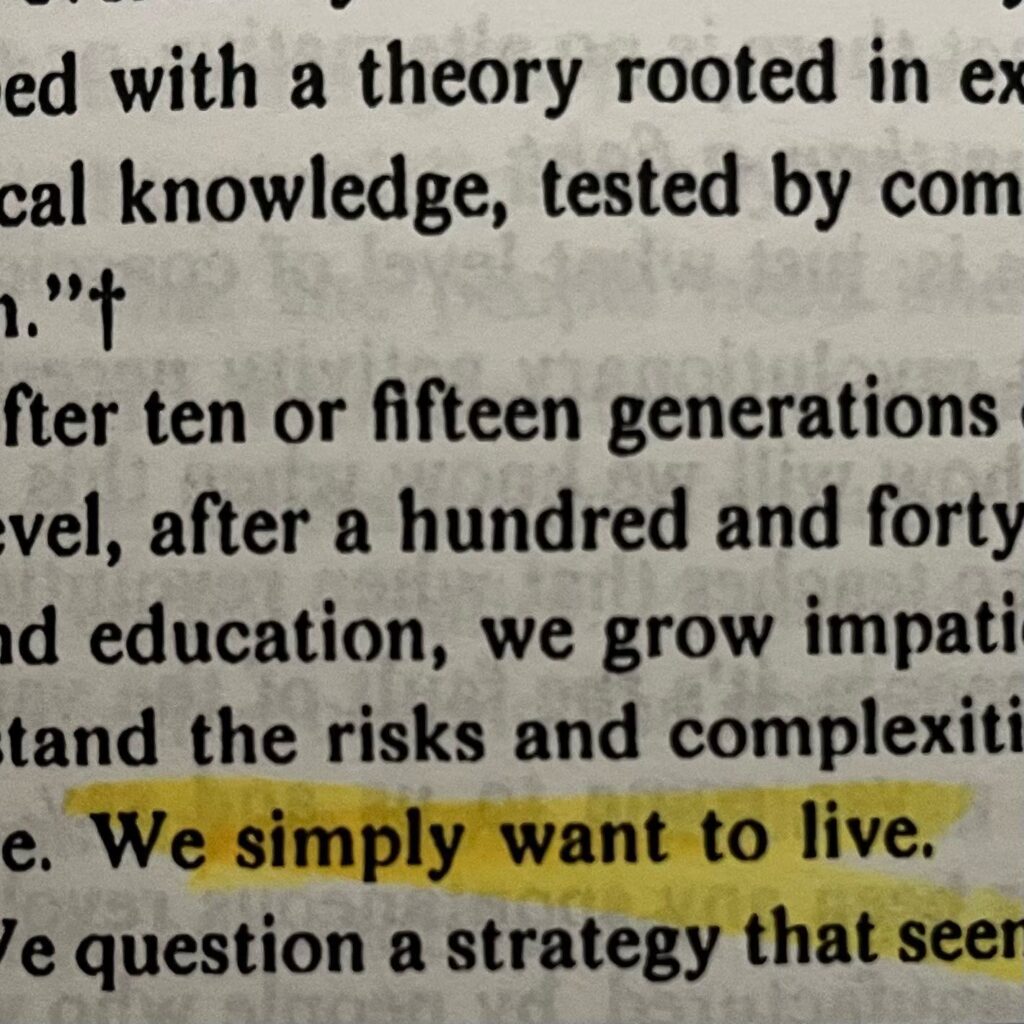
Suggested readings
Subcomandante Insurgente Marcos, Old Man Antonio: “Strength is born in the mountain, but it’s not seen until it arrives below,” (May 28, 1994)
“Antonio’s Dream and a Prophecy,” in Zapatista Stories for Dreaming An-Other World (PM Press, 2022)
The Fire and the Word: A History of the Zapatista Movement by Gloria Muñoz Ramírez (City Lights, 2008)
“The Limitations and Dangers of Decolonial Philosophies: Lessons from Zapatista Luis Villoro” by Gregory Fernando Pappas in Radical Philosophy Review 20.2: 265–295
Let Me Stand Alone: The Journal of Rachel Corrie (W. W. Norton and Company, 2008)
My Son Tom: The Life and Tragic Death of Tom Hurndall (Bloomsbury Publishing, 2008)
Jimmy Johnson and Linda Quiquivix “Israel and Mexico swap notes on abusing rights” Electronic Intifada (May 21, 2013)
Anne Frank, The Diary of a Young Girl (1947)
The Autobiography of Malcolm X (1965)
Huey P. Newton, Revolutionary Suicide (1973)
George Jackson, Soledad Brother (1970)
George Jackson, Blood in My Eye (1971)
Aimé Césaire, Discourse on Colonialism (1950)
Greg Thomas (2016) “Blame It on the Sun: George Jackson and Poetry of Palestinian Resistance,” Comparative American Studies An International Journal, 13(4), 236–253
Khalil Nakhleh’s Globalized Palestine: The National Sell-Out of a Homeland (The Red Sea Press, 2011)
Lisa Bhungalia, Elastic Empire: Refashioning War through Aid in Palestine (Stanford University Press, 2023)
